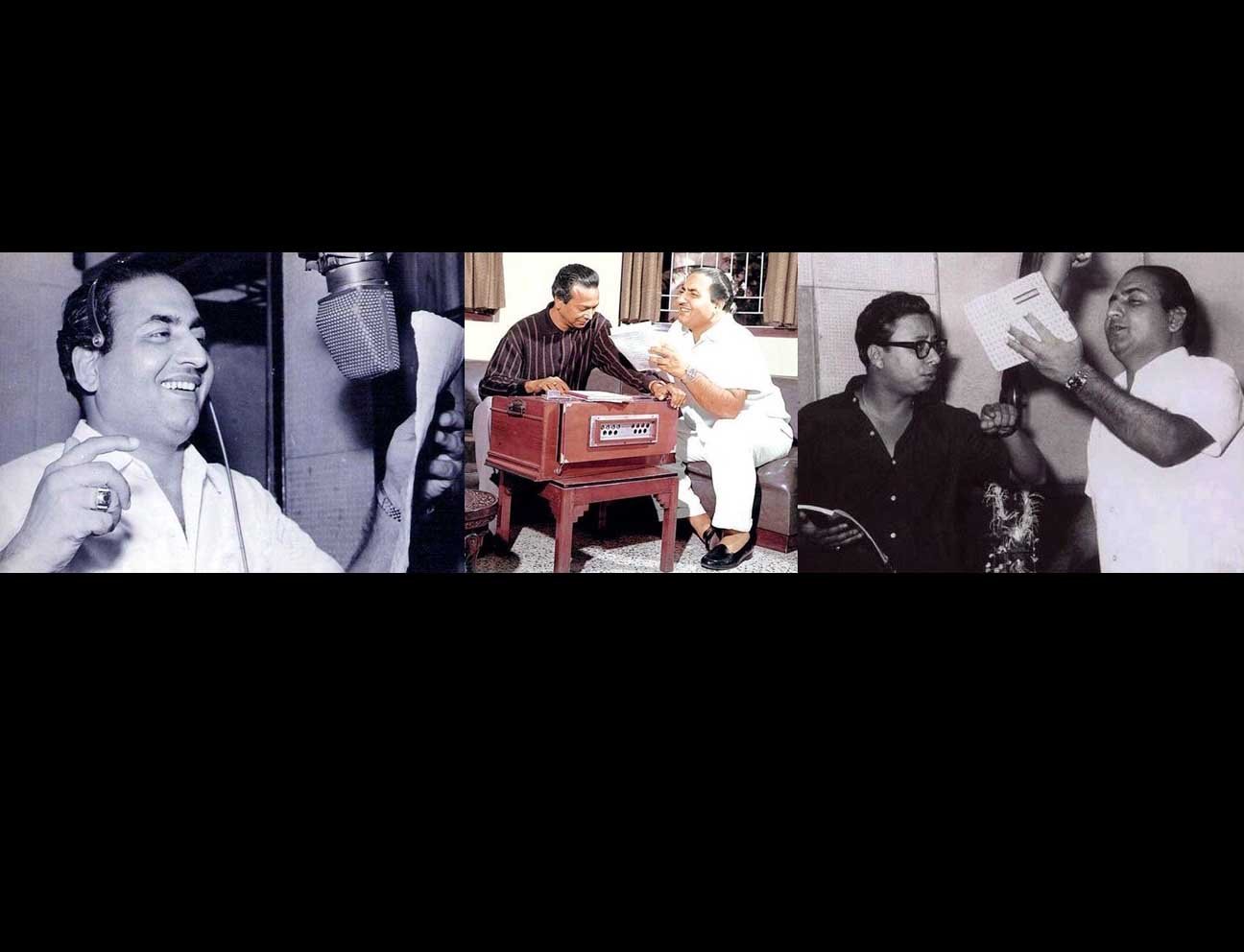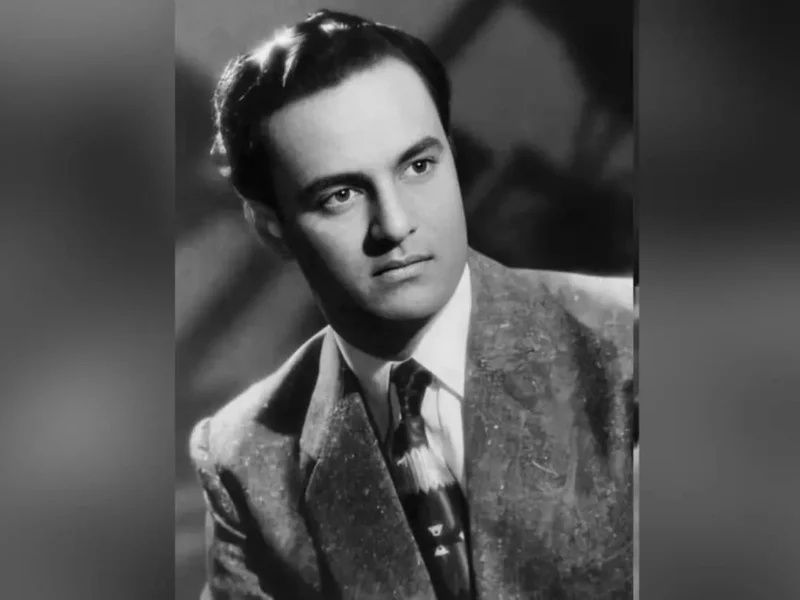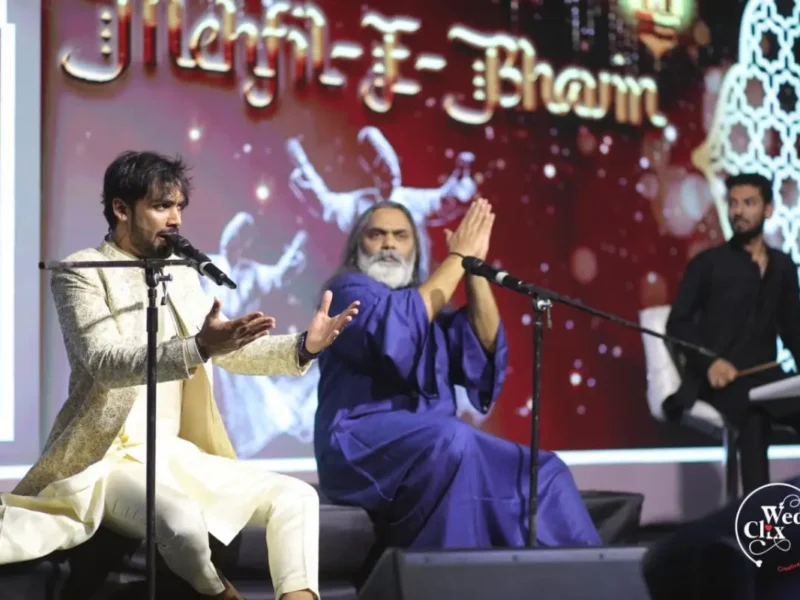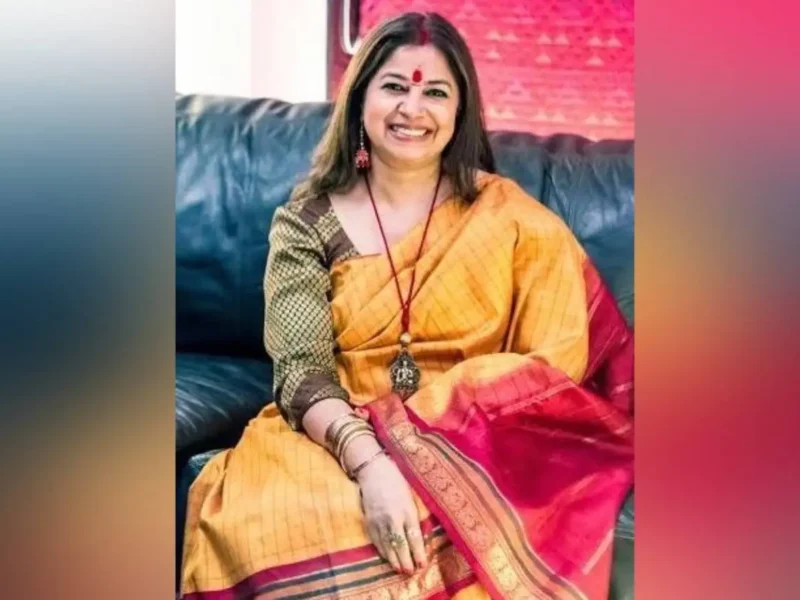
The Versatile, Humble Rafi Sang Even For Kishore Kumar
The voice of iconic Hindi film songs like “Main jat yamla pagla deewana” sung with verve for an animated Dharmendra, the full-throated “Chahe mujhe koi junglee kahe” for the rollicking Shammi Kapoor, or the pastoral rhythm-imbued “Nain ladh jainhe” for Dilip Kumar was a shy, self-effacing man, who was initially hesitant to give fans autographs because he couldn’t sign his name in English.
Mohammad Rafi lived for just over five and a half decades before leaving the world on this day in 1980, but half of his lifespan was spent in displaying his melodiously versatile voice that has made thousands of Hindi film songs — of all sorts — immortal.
From expressions of love to soulful ghazals, exuberant qawwalis, heartfelt bhajans, laments, patriotic paeans, and comic ditties, including advertisements for a head massage by the irrepressible Johnny Walker, no one could beat Rafi in the sheer versatility he could conjure up.
As Dilip Kumar put it, in the introduction to the first full-length biography of Rafi, millions “loved the songs he sang from his soul for their enjoyment and inner enrichment”.
Rafi is credited with 4,425 Hindi film songs but this doesn’t do full justice to his legacy. Could Shammi Kapoor’s exuberant screen persona, Dilip Kumar’s brooding image (or occasionally, a lighter side), or Dev Anand’s jauntiness as seen in songs such as “Bar bar dekho”, “Koi sagar dil ko behla sakta nahi” or “Khoya khoya chand”, respectively, been established had they been in another voice?
While he sang for top stars across generations — from Dilip Kumar, Dev Anand, and Shammi to Rajesh Khanna, Jeetendra, Amitabh Bachchan, and Rishi Kapoor, Rafi used his voice for comedians Mehmood, Johnny Walker, and Radhakrishna, and even fearsome villains Ajit and Pran (in positive roles) to great effect.
Rafi also achieved the unique distinction of singing for equally talented singer Kishore Kumar in at least four films — including “Man mora baawara” (“Raagini”, music O.P. Nayyar).
Born in a family of modest means in a Punjab village in 1924, Rafi spent his early years in Lahore, where he sang a duet in a Punjabi film in 1941 before coming to Bombay in 1944 and trying to secure a foothold in the film industry.
His first notable performance was in the chorus as the legendary K.L. Saigal warbled “Mere sapnon ki rani”, but Rafi, with his innate talent, soon himself became Bollywood’s most recognized playback singer.
Yet, he remained a humble man, who once on returning from work when he was at his peak, called his family together to delightedly announce he had just had the pleasure to sing with Amitabh Bachchan.
Though some of his most enduring work was with composer Naushad Ali and songwriter Shakeel Badayuni, he worked with almost every music director and lyricist in the Hindi film industry.
Of his thousands of songs for Hindustani films, from “Gaon Ki Gori” in 1945 to “Zamaane ko dikhana hai” in 1982, it is difficult to draw up a list of Rafi’s top songs. But a representative list of popular — and not-so-popular — songs across varied genres can be attempted.
Romantic songs are the staple of Indian films, and Rafi was known for giving life to them in all colors and moods, from wistful to playful to even wildly exuberant.
Yet, the dreamlike yet haunting “Chaudhvin ka chaand ho ya”, could easily be one of his signature efforts.
Rafi was Dilip Kumar’s primary voice and out of the extensive ouevre, there is “Madhuban mein Radhika naache” for the classical touch effortlessly rendered, the plaintive “Sukh ke sab saathi dukh mein na koi” and that early rebel love anthem “Zindabad! Zindabad! Ae mohabbat zindabad.”
For Shammi Kapoor, then, there is the melodiously imploring “Akele akele kahan jaa rahe ho” (“An Evening In Paris”, music Shankar-Jaikishan, lyrics Hasrat Jaipuri), especially when he goes up in pitch to ask “Khushamad karega to phir kya karoge” or the ebullient “Yeh chand ya roshan chehra”, especially as he repeats “Taarif karoon kya uski” in a higher and higher pitch towards a sparkling crescendo.
Another that can stand out is the understated “Main shayad tumhe pahle bhi kahin dekha hai”.
Also worthy of a mention is the ensemble “Humko tumse ho gaya hai pyar” from “Amar Akbar Anthony” — for being the only song that features Rafi, Mukesh, Kishore Kumar, and Lata Mangeshkar together.
While “Man tarpat Hari darshan ko aaj”, an ode to Rafi’s virtuosity in injecting a range and amount of pathos, is seen as his best religious song, another one that stands out is “Jai Raghunandan Jai Siyaram”.
And then there are the ‘children’s songs’: “Chun chun karti aai chirya”, “Ab Dilli door nahin”, or “Jeena to hai usi ka.”
Not easily categorized are the haunting “Chahunga main tujhe saanjh savere” and “Raahi manva dukh ki chintaa” for Sudhir Kumar in that touching film “Dosti”.
And finally, who can forget that mildly existential “Main zindagi ka saath nibhata chala gaya”, with that casual cigarette flick and smoke exhalation by a nonchalant Dev Anand.




